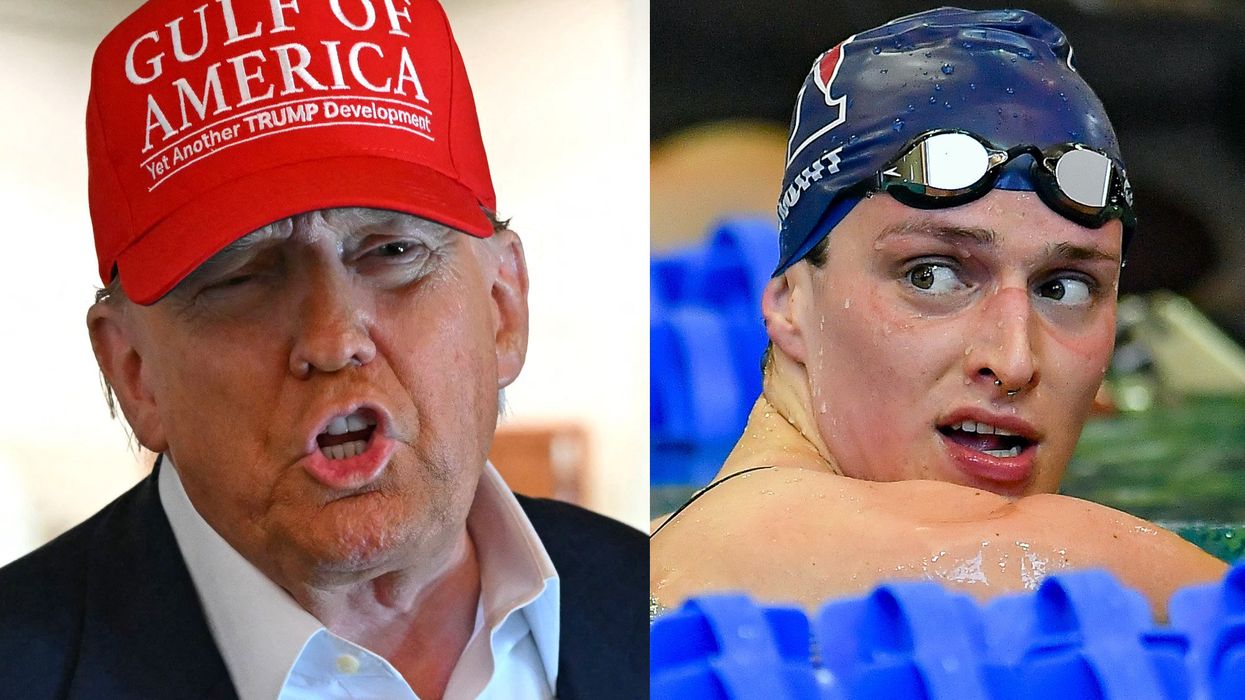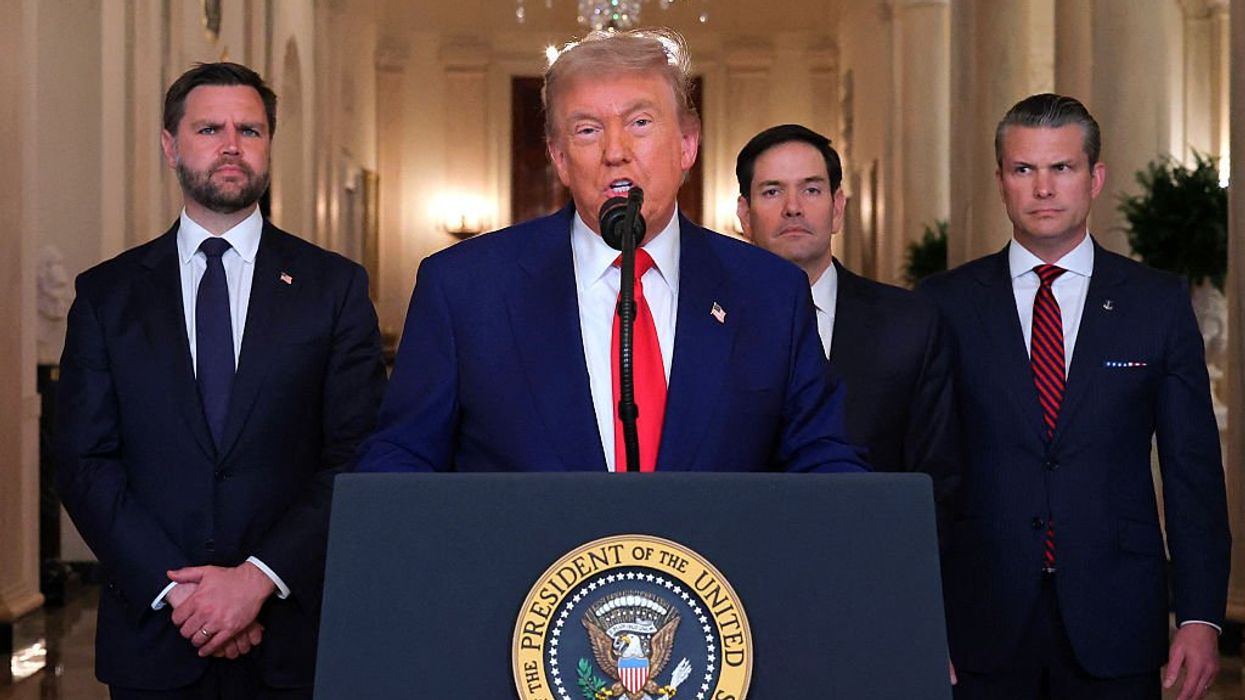
© 2025 Blaze Media LLC. All rights reserved.
You be the judge
Back in January, Senator Rubio hit the talk radio circuit with a clear message: "If, in fact, this bill does not have real triggers in there," he told Rush Limbaugh, "if there is not language in this bill that guarantees that nothing else will happen unless these enforcement mechanisms are in place, I won’t support it." That was in response to Limbaugh's question: "I know for you border security is the first and last, if that doesn't happen, none of the rest does, right?"
"But the principles clearly call for that," Rubio confirmed. "Now, obviously, we have to make sure the law does, too."
Rubio's bill does not call for enforcement first. As soon as the Department of Homeland Security submits two plans, illegal aliens may apply for work permits, Social Security cards, and legal status. The bill then promises enforcement before the legalized aliens transition to green card status.
Many who took Rubio at his word were surprised he gave an equally clear, but very different message to Univision earlier this month. "Let's be clear," Rubio told Maria Elana Salinas, "Nobody is talking about preventing the legalization. The legalization is going to happen. That means the following will happen: First comes the legalization. Then come the measures to secure the border. And then comes the process of permanent residence. As for the legalization, the enormous majority of my colleagues have accepted that it has to happen and that it has to begin at the same time we begin measures for [the border]. It is not conditional. The legalization is not conditional."
 .S. Sen. Marco Rubio (R-FL) talks to reporters on Capitol Hill March 22, 2013 in Washington, DC. The Senate is scheduled to vote on amendments to the budget resolution on Friday afternoon and into the evening. (Photo by Drew Angerer/Getty Images)
.S. Sen. Marco Rubio (R-FL) talks to reporters on Capitol Hill March 22, 2013 in Washington, DC. The Senate is scheduled to vote on amendments to the budget resolution on Friday afternoon and into the evening. (Photo by Drew Angerer/Getty Images)
Sean Hannity was among those who felt burned. "I remember when I first interviewed you about this," Hannity said after Rubio's Univision appearance, "and I asked you very specifically, do you support border security first, and your answer was yes."
Rubio acknowledged that he "probably should have been more artful in the use of terms."
On Tuesday, June 18, he got his chance on the Bill Bennett radio show.
"Lotta confusion about the bill," Bennet said, "and, I must say, some dismay out there on the whole question of legalization first, border security second, simultaneous, or the other way around. People are confused; want to know where you stand on this."
Rubio took a minute to first explain his overall support for the Gang of Eight bill, then returned to the question:
"...Now you mentioned legalization versus- I think there's confusion. Permanent residency in the United States - a green card - that is what, that, that, that's what permanent residency is. In this bill, that does not happen until there is an E-Verify system that is fully implemented, until there is an entry-exit system that's fully implemented, and until there is a border security plan that is fully implemented. And what I'm asking for in this bill is that we go one step further and we say that that border security plan, that has to be fully implemented before the green card is available, that that border security plan should not be left to the Department of Homeland Security. Let's design it. Let's work with the Border Patrol. Let's put it in the bill, the specifics in the bill, so that we know exactly what has to happen on the border so that we can be sure that it will work. The other part that people are talking about is a temporary work permit, basically. You can't get any public benefits, you can't get Obamacare or food stamps. The only thing you can do is you can work and you can pay taxes. And in order to get that, the illegal immigrant is going to have to undergo a background check, they're going to have to pay a fine, they're going to have to start paying taxes, and this thing is temporary. It expires in six years. They have to come back and renew it again and go through the same conditions all over again. But it's not permanent residency. They can never turn that into citizenship."
Later Rubio explained the "confusion" over whether the bill provides legalization before enforcement or the other way around.
"Legalization is a term that's thrown around as a blanket. The green card is what people - I think - at least in my opinion, who I interact with, the green card is what gets you permanent residency in the United States and it allows you to one day become a citizen. You don't get that until all these border provisions and the E-Verify and the entry-exit system have happened. And years have elapsed. So all those things have to happen and ten years have to pass by. That's one thing. The legalization part that people keep throwing around is not - it's a temporary permit - it's like a work visa. It allows you to come in the U.S., you work, you're registered, we know who you are, you've been background checked. If you commit a crime or violate any of the conditions of that permit while you're in that permit, it gets revoked and you're deportable."
Was he more artful with his terms? You be the judge. In terms of the sequence of the bill, Rubio got it right with both Univision and Bennett. The work permits and legal status precedes the enforcement. But in the artful-terminology version, the enforcement comes "first" because, in Rubio's mind, the green cards are what matters and those renewable work permits, legal status, and Social Security cards don't count.
--
More Contributions From TheBlaze:
Want to leave a tip?
We answer to you. Help keep our content free of advertisers and big tech censorship by leaving a tip today.
Want to join the conversation?
Already a subscriber?
more stories
Sign up for the Blaze newsletter
By signing up, you agree to our Privacy Policy and Terms of Use, and agree to receive content that may sometimes include advertisements. You may opt out at any time.
Related Content
© 2025 Blaze Media LLC. All rights reserved.
Get the stories that matter most delivered directly to your inbox.
By signing up, you agree to our Privacy Policy and Terms of Use, and agree to receive content that may sometimes include advertisements. You may opt out at any time.





